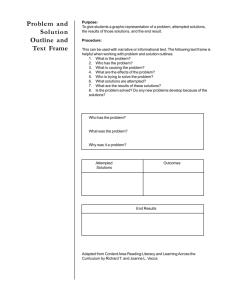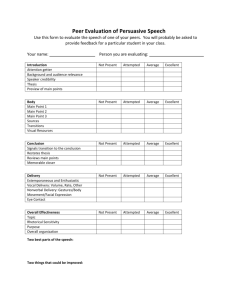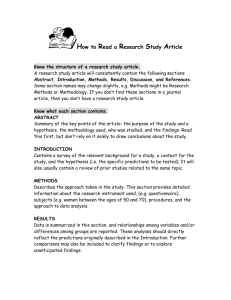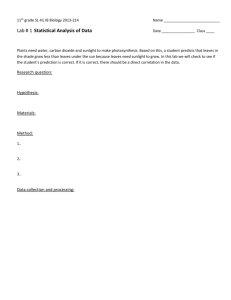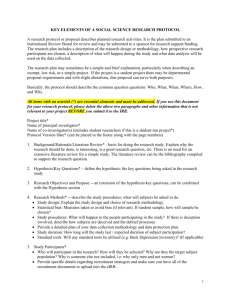Understanding and Evaluating a Scientific Journal Article
advertisement
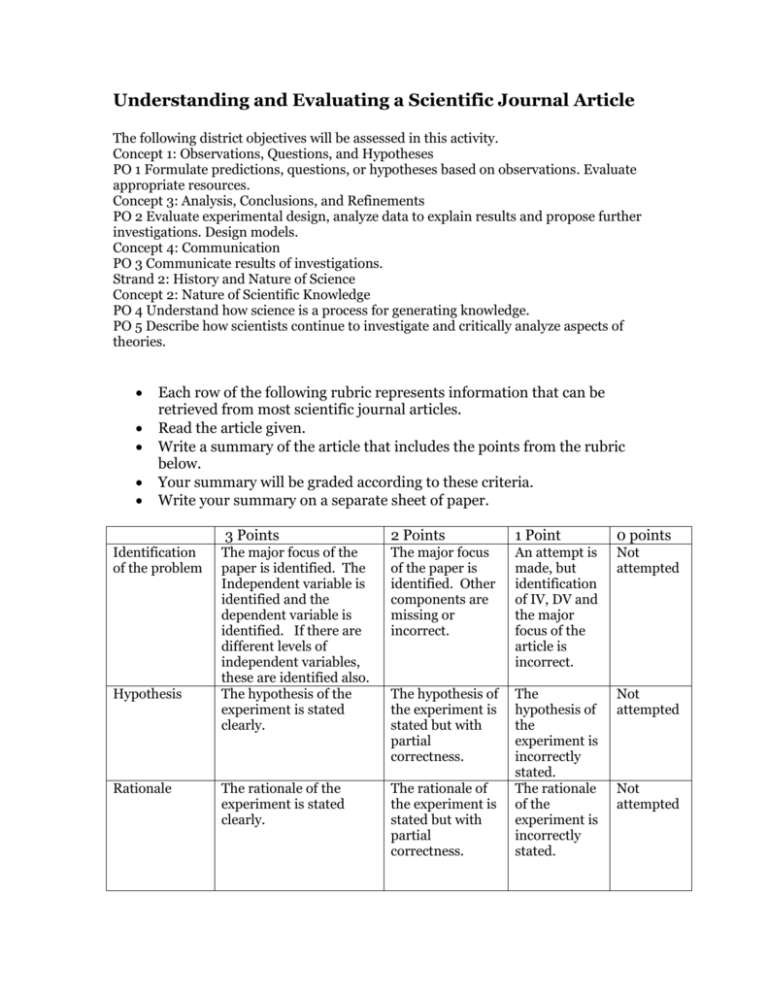
Understanding and Evaluating a Scientific Journal Article The following district objectives will be assessed in this activity. Concept 1: Observations, Questions, and Hypotheses PO 1 Formulate predictions, questions, or hypotheses based on observations. Evaluate appropriate resources. Concept 3: Analysis, Conclusions, and Refinements PO 2 Evaluate experimental design, analyze data to explain results and propose further investigations. Design models. Concept 4: Communication PO 3 Communicate results of investigations. Strand 2: History and Nature of Science Concept 2: Nature of Scientific Knowledge PO 4 Understand how science is a process for generating knowledge. PO 5 Describe how scientists continue to investigate and critically analyze aspects of theories. Each row of the following rubric represents information that can be retrieved from most scientific journal articles. Read the article given. Write a summary of the article that includes the points from the rubric below. Your summary will be graded according to these criteria. Write your summary on a separate sheet of paper. Identification of the problem Hypothesis Rationale 3 Points 2 Points 1 Point 0 points The major focus of the paper is identified. The Independent variable is identified and the dependent variable is identified. If there are different levels of independent variables, these are identified also. The hypothesis of the experiment is stated clearly. The major focus of the paper is identified. Other components are missing or incorrect. An attempt is made, but identification of IV, DV and the major focus of the article is incorrect. Not attempted The hypothesis of the experiment is stated but with partial correctness. Not attempted The rationale of the experiment is stated clearly. The rationale of the experiment is stated but with partial correctness. The hypothesis of the experiment is incorrectly stated. The rationale of the experiment is incorrectly stated. Not attempted Review of Literature The most pertinent references for the article should be presented in a logical order (funnel effect). References are presented in a way that results to the current study but not in a way that shows a funnel effect. References are presented but with no logical order. Not attempted Methods & Materials Summarize the experimental design. (How was data collected and what was done with the data) Data is summarized correctly. The experimental design is presented incorrectly and with incorrect methodology. Data is summarized incorrectly. Not attempted Results Discussion Interpretations that the author made concerning the data are highlighted. State whether the hypothesis is supported or refuted. If the hypothesis is refuted, state the new hypothesis generated. These are areas of the paper that are inadequately explained. Elements that are missing from the article may be mentioned here. The experimental design is presented incorrectly but with correct methodology, or summarized incompletely. Data is summarized with partial correctness. One part of the discussion is not highlighted but the others are done correctly. Several parts of the discussion are missing from the summary. Not attempted Some show areas are mentioned, some areas mentioned in the summary are not real shadow areas. Some, but not all of the areas of future study are identified. Elements that are noted can be found in the article and real shadow areas are not mentioned. Areas of future study that are mentioned are not appropriate. Not attempted Shadow Areas Areas of possible study Areas of future study from the paper itself are mentioned. Total Score _____/27 Not attempted Not attempted
